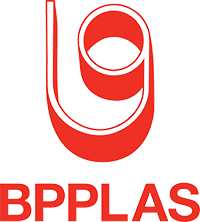Kenanga Research initiates coverage on BP Plastics with target price of RM2.50 — 50% upside to current trading price

KUALA LUMPUR (July 12): Kenanga Research initiated coverage on BP Plastics Holding Bhd (BPPLAS) today with an “outperform” rating and target price of RM2.50. The target price of RM2.50 is a 50% upside to the stock’s current price of RM1.67.
The research house noted that it is bullish on BPPLAS for robust demand from export and local markets, and catalysts for both near- and long-term margin expansions. The company is a polyethylene (PE) film manufacturer in Asia.
Kenanga Research also likes BPPLAS for its attractive 5.4% dividend yield, which is above the industry average of 2.5%.
“BPPLAS is in a strong net cash position, when coupled with its ability to consistently generate healthy cash flows allow sustained dividend payouts. BPPLAS has consistently paid dividends of 4.0-8.0 sen from 2016 to 2020, with a payout ratio above 50% of net income. Therefore, we are positive that BPPLAS will continue to pay dividends of at least 8.0 sen for FY21. We are expecting DPS of 9.0 sen for both FY21 and FY22, representing yields of 5.5%,” it added.
Kenanga Research estimates the company’s FY21 and FY22 net profits to be RM36.1 million (year-on-year +22.4%) and RM39.4 million (y-o-y +9%), respectively.
“BPPLAS recorded stronger growth in sales volume in 1QFY21 (+13% quarter-on-quarter) compared to 4QFY20 (+2.8% q-o-q) mainly driven by orders from existing customers in both export and local markets. That said, BPPLAS is gaining market share from its competitors. We understand that BPPLAS is able to cater to extra orders from customers with its average utilization rate of 75%, which is near 80%, upon which BPPLAS will expand capacity to continue catering to the robust demand,” it said.
The key risks include the volatility of raw materials, labour shortage risks and exposure to foreign currency risk, Kenanga Research said.
Nevertheless, the research house added that it thinks BPPLAS is “grossly undervalued” given the strong demand growth from export and local markets, solid balance sheet with cash per share of 41 sen (as of March 2021), its ability to pass on higher resin costs, and better margin product mix.
